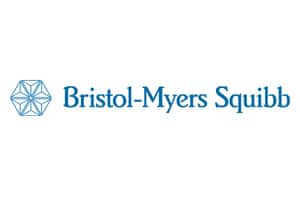
Bristol-Myers Squibb has announced that the US’ Food and Drug Administration (FDA) has accepted a priority review for its Opdivo/Yervoy combo in previously treated hepatocellular carcinoma patients.
Hepatocellular carcinoma is the most common type of primary liver cancer, and it is often diagnosed in the advanced stages with a poor prognosis. There are limited treatment options for HCC patients, with only a handful of new agents having been approved in recent years in the second-line setting.
The priority review was accepted on the back of BMS’ phase 1/2 CheckMate-040 study, evaluating Opdivo (nivolumab) and Yervoy (ipilimumab) as a treatment for HCC patients previously treated with Bayer’s Nexavar (sorafenib).
“The FDA’s acceptance of our application for Opdivo plus Yervoy represents important progress for patients with liver cancer in the US, where hepatocellular carcinoma is the fastest rising cause of cancer-related death,” said Ian Waxman, development lead, gastrointestinal cancers, Bristol-Myers Squibb.
“Despite recent advances, hepatocellular carcinoma remains a difficult-to-treat cancer and patients are in need of additional effective treatment options. We look forward to working with the FDA to bring the potential of a dual immuno-oncology therapy to these patients for the first time,” he added.
BMS has previously evaluated Opdivo as a monotherapy treatment in front-line lung cancer, although its efforts in this area were fruitless. Opdivo failed to show efficacy in the front-line treatment of HCC, as it was unable to improve overall survival (OS) when compared to Nexavar in the CheckMate-459 study.
However, the trend towards an improvement in OS that didn’t quite reach statistical significance raised the hope that a combination therapy could improve upon Nexavar.
The Opdivo and Yervoy combination is the result of these efforts – despite not seeking an indication in the front-line setting but rather as a second-line treatment. Opdivo is already approved as a monotherapy second-line treatment for HCC, but the combo could see it capture more of the market share if it gains approval.
BMS is also looking to edge into the lung cancer market, with a recent phase 3 trial demonstrating positive results for Opdivo/Yervoy in front-line advanced non-small cell lung cancer (NSCLC). However, this a market dominated by Merck’s Keytruda (pembrolizumab) and this regimen is already widely prescribed for newly-diagnosed NSCLC patients.
The hope for the Opdivo/Yervoy combo is to reclaim significant growth for BMS’ star PD-1 checkpoint inhibitor – in its third-quarter results, the company revealed that Opdivo grew just 1% to $1.82bn, with sales slipping 5% in the US.
However, BMS is likely hoping that its upcoming $74bn takeover of Celgene will reduce its reliance on Opdivo in its top-line.




